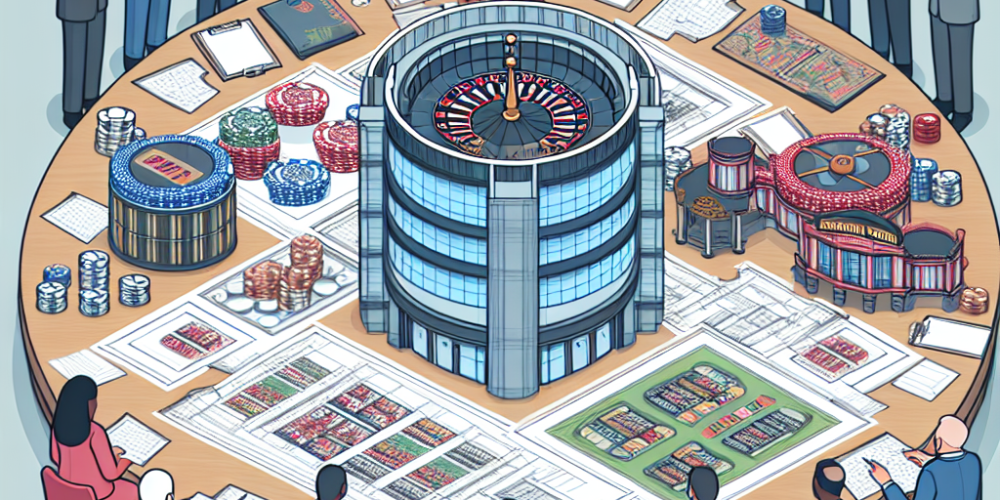The British Prime Minister, Keir Starmer, announced during a recent session of Prime Minister’s Questions in the House of Commons that the government is exploring new methods to empower local councils with increased authority over planning applications for gambling establishments. This comes in response to mounting demands from local authorities across the UK, who have long sought more substantial influence over the location and proliferation of such venues.
In April, a coalition of 38 local governments submitted a proposal to Lisa Nandy, then Secretary of the Department for Culture, Media and Sport, advocating for amendments to the 2005 Gambling Act. This proposal included six key reforms, among them the ability for councils to consider factors such as household debt levels when reviewing new applications for gambling venues. Until now, the government had remained largely silent on these appeals, seemingly hesitant to impose additional restrictions that might stifle industry growth. However, Starmer’s recent remarks indicate a shift towards supporting local government oversight through mechanisms like cumulative impact assessments.
Starmer emphasized the importance of granting local authorities new tools to revitalise high streets while ensuring community safety. Drawing parallels to existing alcohol licensing assessments, he indicated that similar frameworks could be established for gambling outlets to give councils more control over their numbers and locations. “Local authorities need these tools to build vibrant, safe, and thriving communities,” he noted, acknowledging the need for targeted interventions.
The notion of cumulative impact assessments, akin to those used for alcohol licensing, suggests a new proactive approach. This methodology would empower councils to consider the density and distribution of gambling venues within their jurisdictions, potentially curbing oversaturation and its associated social impacts. Nevertheless, critics argue that more is needed, with some calling for an overhaul of the “aim to permit” directive currently guiding the Gambling Commission and local licensing bodies. This rule leans towards approving gambling operations unless they explicitly conflict with licensing objectives.
Besides assessing household debt, local authorities are also advocating for more significant control over the proximity of gambling venues to schools. They suggest reclassifying bingo halls and adult gaming centres under the same regulatory framework as betting shops, thus standardizing oversight across different types of gambling facilities. Additionally, there’s a push for councils to have the authority to ban gambling advertising and sponsorships within their localities, a move reminiscent of London Mayor Sadiq Khan’s earlier, yet unrealized, attempt to ban gambling ads across Transport for London networks.
Moreover, councils seek a reevaluation of technical regulations, such as spin speed and stake limits for B3 gaming machines. They also propose a statutory levy dedicated to funding programs aimed at preventing gambling-related harm, a measure poised for national implementation this month.
Contrastingly, some voices within the local government sphere express frustration with the Gambling Commission’s role. Tim Miller, the Commission’s executive director, recently addressed the Peers for Gambling Reform group, clarifying the regulatory body’s scope. He highlighted that while local authorities are responsible for licensing, there’s a misconception that the Commission should manage on-the-ground inspections—a task designated to local governments under current legislation. Miller observed a tendency in public policy to seek new interventions without adequately assessing their effectiveness once implemented.
As the debate over local control intensifies, the gaming industry faces additional pressures amid proposals for increased taxation. Concerns are mounting over the Treasury’s suggestion to unify existing gambling taxes into a consolidated Remote Betting and Gaming Duty, a measure expected to feature in the upcoming autumn budget.
The discourse surrounding gambling regulation in the UK continues to evolve, with stakeholders from various sectors contributing to an increasingly complex conversation. While local councils push for enhanced control to better address community concerns, the gaming industry remains vigilant, wary of potential economic repercussions that could accompany new legislative changes. As the government considers these reforms, balancing public welfare with industry viability remains a delicate task, ensuring that any regulatory shifts support both community interests and economic sustainability.

















